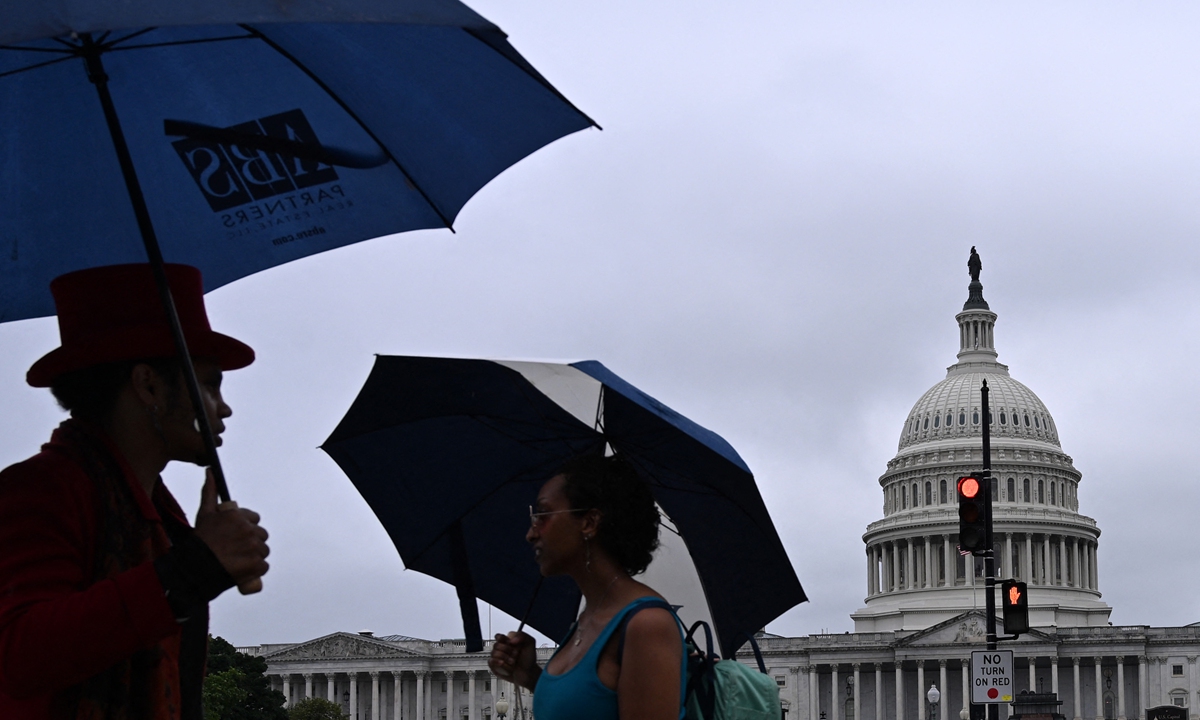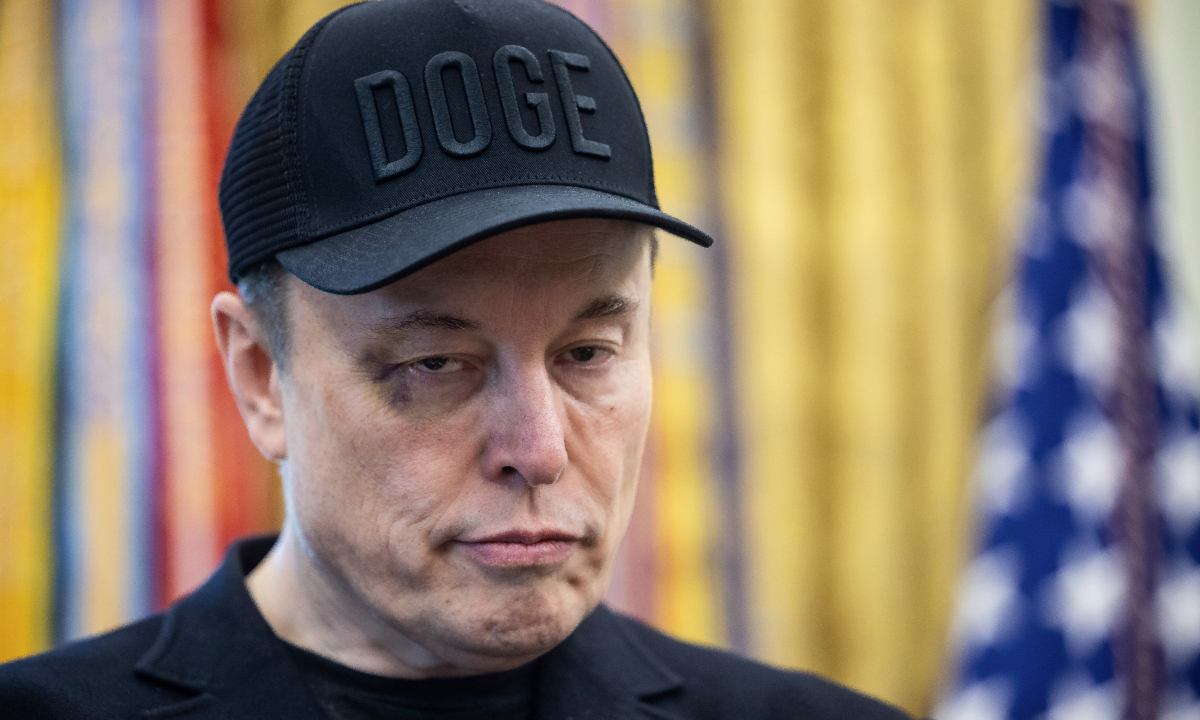
A reporter naps in the Press Gallery off the Senate Chamber as the Senate stayed in session throughout the night at the US Capitol Building on July 1, 2025 in Washington, DC. Republican leaders are pushing to get President Donald Trump's so-called "One, Big, Beautiful Bill," Act through Congress and to his desk before the July 4 Independence Day holiday. Photo: VCG
US President Donald Trump and billionaire Elon Musk have engaged in a new round of row over the controversial "big, beautiful bill" as the Senate seeks to move toward a final vote on the reconciliation package, US media reported.
Their conflict focuses on the electric vehicle (EV) sector. Trump wrote on his platform Truth Social on Monday local time that "Elon Musk knew, long before he so strongly Endorsed me for President, that I was strongly against the EV Mandate… and without subsidies, Elon would probably have to close up shop and head back home to South Africa."
Musk on Monday renewed his call for a new political party, writing on his social media platform X that "if this insane spending bill passes, the America Party will be formed the next day."
"Our country needs an alternative to the Democrat-Republican uniparty so that the people actually have a VOICE," he wrote.
According to CNN, in a flurry of X posts several weeks ago, Musk has proposed starting a new political party. That proposal resurfaced on Monday when he said: "It is obvious with the insane spending of this bill, which increases the debt ceiling by a record FIVE TRILLION DOLLARS that we live in a one-party country - the PORKY PIG PARTY!! Time for a new political party that actually cares about the people."
The Senate's version of the bill would increase the deficit by nearly $3.3 trillion between 2025 and 2034, roughly $1 trillion more than the House-passed version, according to the nonpartisan Congressional Budget Office
Musk blasted on Saturday local time that "The latest Senate draft bill will destroy millions of jobs in America and cause immense strategic harm" to the US. Calling the legislation "utterly insane and destructive," Musk argued it provides subsidies to outdated industries while harming future-focused sectors.
The two former allies' collaboration at very beginning was inconceivable, considering they have opposite views and interests in regard to EVs and clean energy industry, Lü Xiang, a research fellow on US studies at the Chinese Academy of Social Sciences, told the Global Times.
The bill, which is more than 900 pages long and dubbed the "Big, Beautiful Bill" by Republicans, passed a key procedural vote over the weekend in the Senate largely along party lines, with all but two Republicans voting to advance it.
Lü said though Democrats could create filibuster in the Senate, the bill will very likely pass the Senate ultimately and move forward.
It will then go back to the House for another vote and ultimately must be signed by President Trump before becoming law, per NBC News.
According to Lü, the bill will not only affect Musk's EV giant, but signals a major veering of US energy policy: touting US fossil fuels while suppressing its own clean energy sectors.
The bill's proposed additional tax on wind and solar projects is estimated to increase consumer energy prices 8 percent to 10 percent and would tax clean energy businesses an additional $4-$7 billion by 2036, CBS News reported, citing an analysis by the American Clean Power Association.
The move will not only have an impact on America's own energy transition, but also, considering the US' global influence, deal a blow to international carbon cut and climate response efforts, Lü said.



